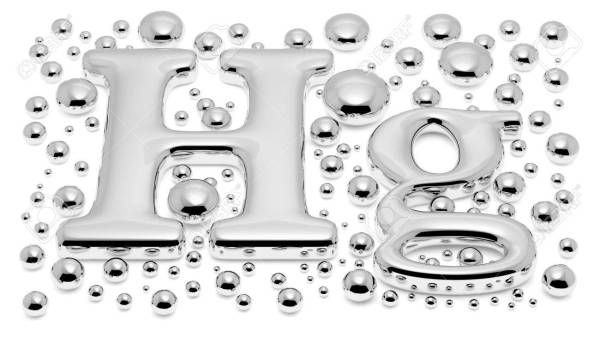In Thursday’s article related to brain injury and mercury, I see that some may have found the title derogatory towards dentists. As someone who had braces in middle school and yearly gets regular checkups, I see the benefit of dentistry. In addition, I understand that doctors and individuals recognize the benefit of treatment and care with mercury on certain conditions. For these reasons, I have changed the title of this article.
Mercury Can Cause Brain Damage in Kids read the headline in the Huffington Post earlier this year. Mercury (Hg) is a naturally-occurring, odorless silver metallic trace element that is liquid at room temperature. It comes in three forms: elemental mercury, which is the form of mercury found on in teeth fillings, inorganic mercury, and methylmercury, also known as organic mercury found in such things as fish. Its safety has long been disputed. For example, while many people have amalgam teeth fillings that contain mercury, batteries, which are filled with mercury, are known to be unsafe. In medicine, it has been used as a purgative, disinfectant, astringent and particular as an antisyphilitics treatment.
Mercury is a neurotoxin. Ingestion, absorption and fume inhalation of mercury can cause mercury poisoning. The complications of mercury poisoning are numerous and can happen to people of all ages: weakness, fatigue, headaches, lower back pain, ataxia, slurred speech, tremor, somnolence, and mental disturbances, such as hallucinations and psychosis. In fetuses and young children, Hg exposure, “may delay developmental milestones,” the NIH found 20 years ago. For these reasons, mercury has been named one of the ten chemicals of major public health concern by the World Health Organization. Additionally, its application in medical/dental care and in such products as fertilizers and pesticides has been lessening through the years. One of the concerns scientists and people, in general, have with consumption of tap water is the possible additional consumption of mercury.
This year, the above-mentioned Huffington Post headline continues: Mercury Can Cause Brain Damage in Kids, the EPA Wants to Weaken Rules On Its Emissions. The article’s title relates specifically to a legal proposal the Environmental Protection Agency sent to the White House that they say would hobble the 2011 Mercury and Air Toxic Standards (MATS) rule. It specifically refers to the mercury emitted in the production of coal. (However, the article’s title simplifies the action they are requesting, in a negative manner. The proposal wants to eliminate co-benefits, in order to save the coal industry billions.) A win for the coal industry, the article continues, as power plants are the nation’s biggest emitter of mercury. If the proposal is enacted, there will be additional health costs for the public. While the financial burden to the public is much less than the current cost of implementation of the rule for the coal industry, is the outcome more important?
I see no legislative follow-up on the proposal. Additionally, on the EPA webpage dedicated to MATS, it still states that the ruling has prevented thousands of premature deaths a year and has many health benefits, which seems to imply that the basic standards have stayed the same. However, if the rules regarding mercury are lessened, critics call it a win for the coal industry, as MATS specifically sets limits on the amount of mercury, and other toxins, allowed in coal-fired power plants.

